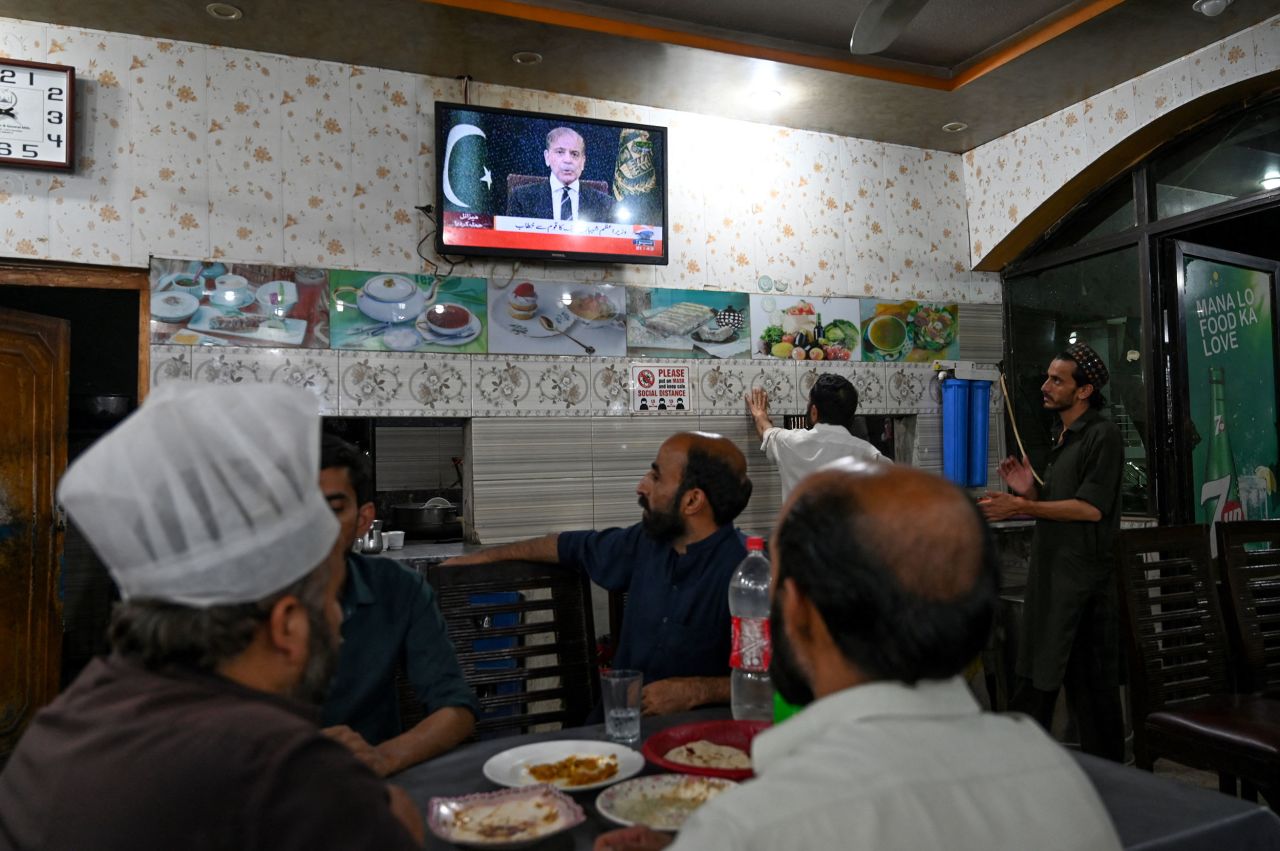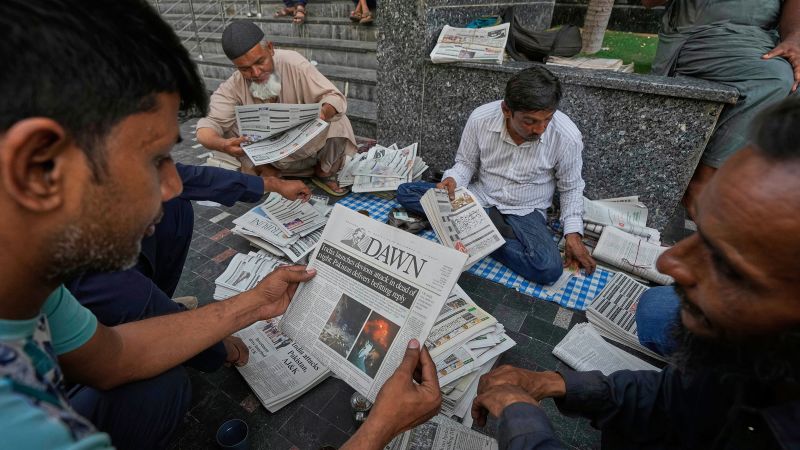
Pakistani Prime Minister Shehbaz Sharif has vowed to respond to India’s strikes in Pakistan and Pakistan-administered Kashmir that were carried out in the early hours of Wednesday local time.
What that response entails may well decide whether the two countries are able to find an off-ramp or become locked into an escalating confrontation.
One option for Pakistan is to claim victory, pointing to the jets it claims to have downed. This option depends on the truth of Pakistan’s claims that it has downed five Indian Air Force planes, including three French-made Rafale fighter jets.
If there have indeed been losses for India, “Pakistan could claim victory by pointing to the downed assets, even if the circumstances are murky. This would allow Pakistan to claim it has imposed costs on Indian military targets,” said Milan Vaishnav, a senior fellow and director of the South Asia Program at the Carnegie Endowment for International Peace.
A second option is to carry out strikes of its own. Pakistan might decide it wants to “respond in kind” because some of India’s strikes hit the densely populated province of Punjab in Pakistan, said Tanvi Madan, a senior fellow in the Foreign Policy program at the Brookings Institution.
Or Pakistani Army Chief Syed Asim Munir, who is reputed to be “more assertive” than his predecessor Qamar Javed Bajwa was in 2019 when India and Pakistan last clashed, may decide he wants to “up the ante,” said Madan.
However, given India’s messaging has been that it will retaliate if Pakistan’s next move goes too far, Islamabad could decide to keep any response “below a certain threshold,” Madan said.
Pakistan’s Defence Minister Khawaja Asif has said Islamabad will only hit military targets in India, not civilian.
The latest statements from Pakistan suggested it is thinking of a measured response, Madan said, adding however, that no possibilities can be ruled out.
“Largely on the basis of what we’ve seen in previous times, these are two rational actors who don’t want a broader war. Both have something to lose if there is a broader conflict,” she said.

